Picasso is probably the greatest (by reputation) artist of the twentieth century. His mural Guernica appeared at the Paris World's Fair in 1937. If it was a statement against war, it failed utterly in purpose.
I do, however, respect the formal artistic qualities of his art. He really did move the institution of art forward, as a founding Cubist, which is a direct influence on my own art. I especially like his drawings.
 Pablo Picasso. (Spanish, 1881-1973). La belle qui passe. (1904). Ink on paper, 11 1/2 x 15 3/4"
Pablo Picasso. (Spanish, 1881-1973). La belle qui passe. (1904). Ink on paper, 11 1/2 x 15 3/4"MoMa
Have a look at Picasso's exceedingly strange and eventful personal life, beliefs and politics. I rarely concern myself with these things, even letting my artist heroes "get away" with murder, because I want to focus on their art. But, if contemporary times are concerned with social aspects of art, I offer Pablo as the poster child of strange (may I say "goofy"? - he was very extreme) artist lifestyles.
In this vein, I wonder about his life and times. I see, in Wikipedia, that he was an "Anarcho-Communist". That finally makes sense to me of his remaining in Paris under the Nazis. A communist would've been at the throat of the Nazis, but his brand of anarchist was allergic to conflict. His Cubist buddy, Braque, considered him a coward. You be the judge.
I'm sorry to get into politics, which is outside of my art blog direction, but the social subjects of contemporary art criticism and art history are hand in glove with politics. I think Picasso's funny beliefs and behaviors are illustrative of why I avoid these things in my own art direction. The more "out-there" an artist's politics, the less I feel they offer the advancement of art. I call my position: "art as art". Of course, he was a great artist, so I guess someone could argue the other direction.
Picasso website.


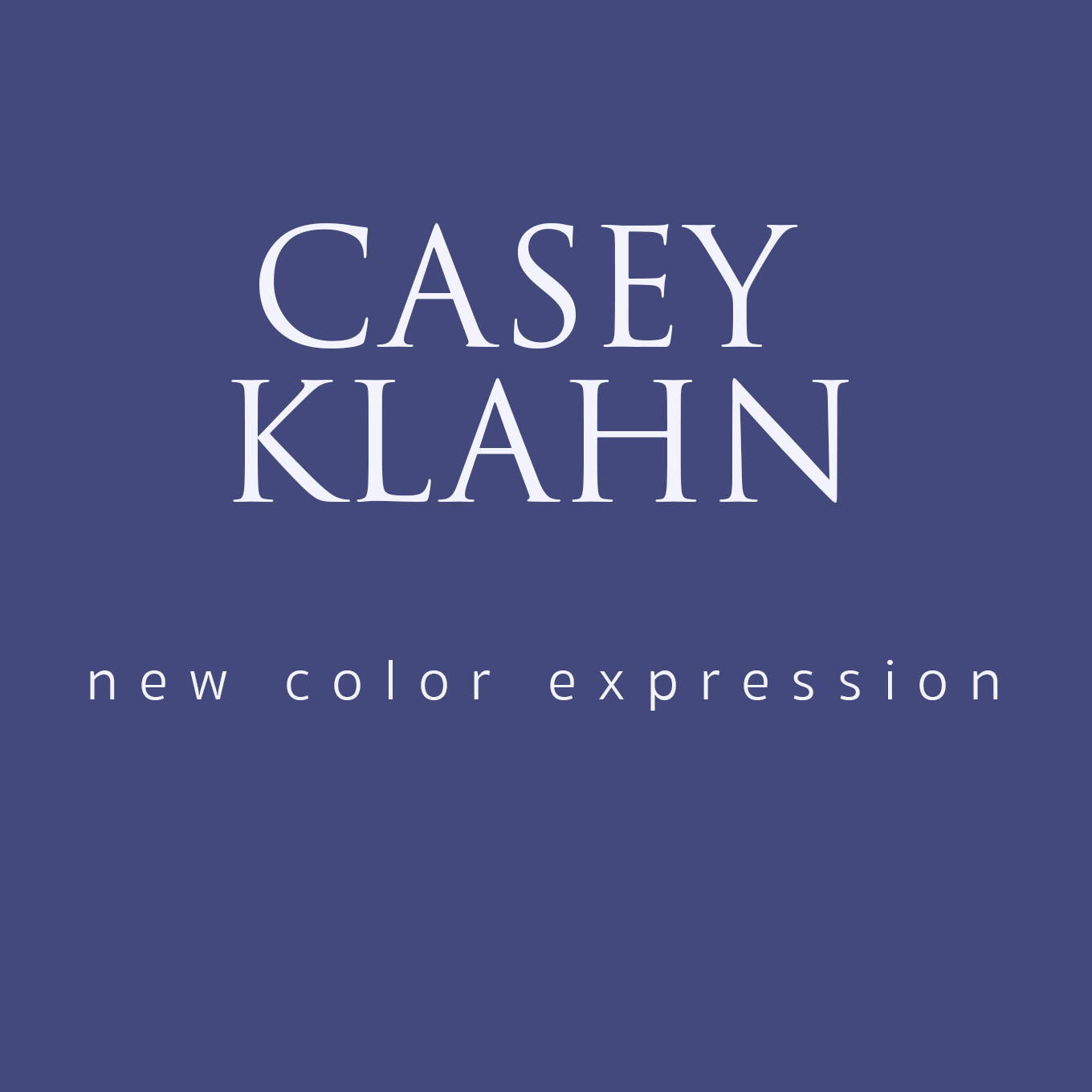
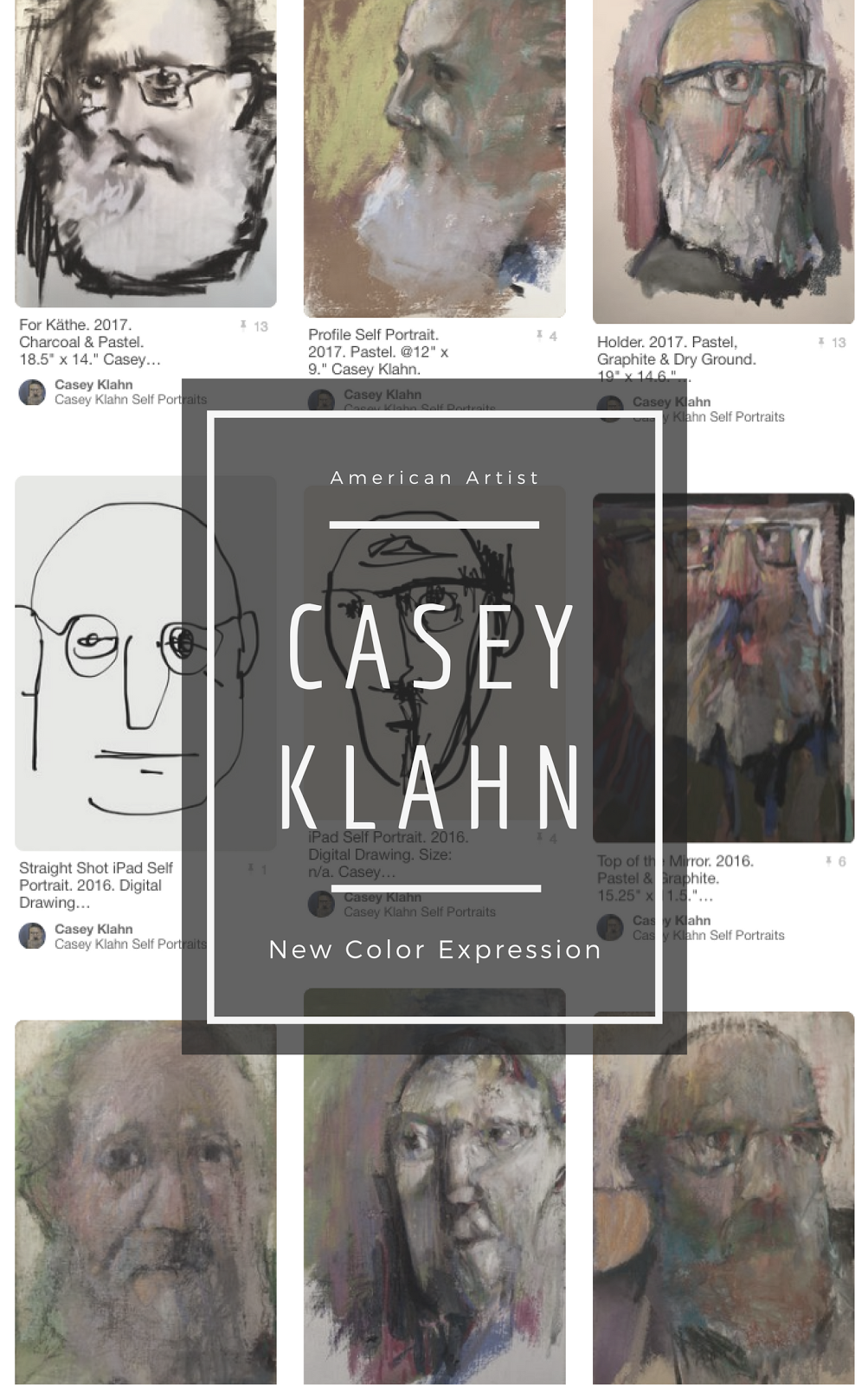







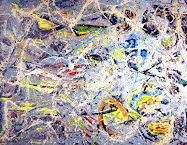
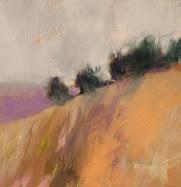
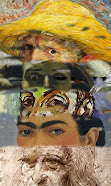






12 comments:
You won’t be surprised to learn Casey that I totally disagree with what you say about Guernica. I also find myself ill at ease with the notion that art is art and outside of politics. Art is part of life and life is part of politics. I see nothing helpful in the idea that these things are all somehow separate and to be put in closed boxes. All are as one.
Was the life of Picasso so strange? Take a look at the life of Caravaggio – a deeply controversial figure if there ever was one. In fact, rather cynically, I sometimes wonder if I could have propelled myself to centre stage as an artist if only I could have regularly made the gossip columns. I am sure a lot of very famous artists have only achieved the level of fame because, in addition to tremendous talent, they have led what the press regard as super star lives that a bored general public just love to get steamed up about. Newspapers depend on it in fact. It is easy to forget that most famous artists have been controversial in their day. Leonardo is another example and much of his work had to be carried out in secret for that reason. Much valuable research was destroyed by the Church after his death and looking back it all seems rather silly now. Add Jackson Pollock and Andy Warhol to the list by the way.
Had I lived in Spain at the time of the Civil War (a hugely complex subject which takes considerable understanding by the way) I would not have got involved either. It has always been a point of interest to me that the Catholic Church took the side of the fascists. I am sure I would have been called a coward and worse perhaps but one only has to look at history to know that the outcome of a civil war or revolution is totally unpredictable and the loss of life involved contributes nothing to achieving a desired outcome. The military route as we can see today can often makes things worse rather than better. In my opinion Picasso was intellectually correct to step aside.
As for communism – nothing controversial about that. Millions of people have been and are communists as a matter of belief. China is a communist state and is set to take over from the US as the most powerful nation in the world. TIn my view, there never has been a truly communist state though (even in Russia) and most people seem to mix up the term communism with what is really just state capitalism. I think Picasso would have understood the difference.
There is a place for art to be challenging and thought provoking at times. I see nothing wrong with this. I myself have occasionally painted something that conveys a message – war and the environment have been a couple of themes I have explored.
Going back to Caravaggio – yes I have seen his art in the flesh as I have Rembrandt, Titian and many other greats. Often I present my opinions on the basis that I have seen the work in question - I usually add a word of caution if I haven’t as I think that this can sometimes colour one’s judgement.
Post Script
I meant to ask how you have arrived at your view that the painting failed in its message. Looking round the Net it seems to be regarded by all an sundry as 'The greatest anti-war painting of the modern age'.
I love picasso! He's an inspiration to me and many artist's....I'm sure! What a brillant man!
My fav. part of his works is his innocent stage. His ability to create as a child would, in an innocent type of way. His works are just fasinating to me. I can't say enough about Picasso!
Let's see, I don't want to contradict myself. But I'll just fire away.
I find social and political art to be divisive and not advancing of the cause of art as art. That is one of the reasons I like formal qualities of art-like the Abstract Expressionists did. They were apolitical (in their art) for the same reasons, I think.
While religion, politics, and social theory are inseparable from life (you're right), I don't think that art which caters to these things is the future or cutting edge of art. I categorize this type of art as narrative, which has "had it's day", if you will.
Propaganda, which is overt persuasion by a political body, can be seen as low art IMO.
But, I don't call these things non-art. I reserve that moniker for something else.
BTW, there are some good and convincing arguments that disagree with the Roman Catholics as siding with the Fascisistas. We can go that way later, but it is a challenged supposition now.
Your love of Picasso is well shared by society in general. But, I think his life was categorically strange. I bring it up as a hyperbole-an extreme illustration of the artist who tries to project unusual ideas with his life and work.
Guernica failed to convince enough people to avoid war, as shown by that little dust-up that occurred after 1939. I do, however, like it's Cubist qualities. But, it's (reported) message would lead me to ask: "who, then, will defeat fascism?"
Switzerland was neutral in WWII by default of topography and locale; Spain was neutral with a fascist tilt by politics. Maybe Picasso leaned that way a little, too. If not, why did he continue in Occupied Paris when he could have remained in Barcelona? I think that, in WWII, you were either intimidated by the Axis or you weren't - and you stood up to them.
The Spanish Civil War is not my forte, and I guess I only have considered it from it's common threads with the world war to come. How could one argue that it took place in a vacuum? I don't think you could.
We digress too much. Picasso's anarchistic communism was probably a good distance from the communism of murderous historical fame. They wanted dissolution, but by means not related to force. I mean, Western European communism during the war years was anything but pacifist-Have a look at Mussolini and Petacci hanging in April of '45 for evidence.
Let's see...you bring up the enigmatic artists who get the publicity. I guess that would be another thread about how the artist relates to his art, and how he is treated in art history (versus art itself). I could see Pablo being a public figure, but the famous love life, the funny politics, the Nazi
collaboration (presence in occupied Paris) - I think he was a little past enigmatic!
Have you ever thought about the idea that communism was a derivative of a Christian Heresy? We could go that way, too, but I think I'll spare my kind readers that one, for now. I am, however, getting interested in the Hegellian and Marxian directions in present day art history theory. My own take? I would ask: why does one need to destroy the past movements in art to create a new one? But, I digress a little farther, now.
I envy you having seen Caravaggio. Did you see oxidization? Dull areas?
(I pour an alcoholic spirit, and gesture to Angela) "Thank you for joining this conversation," I say.
Well I am not going to pick up on the many points you make as each one is worthy of a debate in itself. I would be writing all night! The only thing I want to say is that we still don't know the measure of success of Guernica. It was unlikely to change the world overnight and is only part of a much wider peace movement that ebbs and flows over the decades. What is clear is that there is much less stomach for war these days - especially if it involves significant loss of life. The Vietnam war showed that the general public were much less tolerant of mass slaughter than had been the case in WWI and II. The same applies to Korea and even now in Iraq. The testosterone loaded polictians don't get it quite so easy these days.
:) Anytime my friend, anytime! :)
I'm not a big fan of this painting, or Picasso in general. I admire his boldness and his use of art as a tool to express his views. It may come from my inexperience as an artist or my shallow knowledge of art history, but I like art that pleases my eye. I tend to like paintings that speak to me more than those that don't - and this one doesn't. I don't like cubism because it makes my eyes hurt. As a style, it is awesome, because it has such an effect on viewers. But I wouldn't want one on my wall.
I've been told that the more artistic experience you get, the more you realize just how great the masters were. So it may be a matter of my limitation, but I feel this particular painting shows no mastery of form or value. Composition is OK, but clumsy. Its sole merit is the emotion it brings. I agree with Casey that art's formal qualities are timeless, whereas it's difficult to relate to a political or "current events" piece unless you're intimately familiar with the situation. I can see the emotion in this painting, but that alone doesn't make it speak to me.
Hey, Meg. Thanks for commenting here. You want a beer, too?
What I like about Cubism was that we learned to value the whole canvas. I have to make sure that every part of my rectangle works with the whole, now. I have often commented how the Impressionists, who painted a very little while prior to the Cubists, had areas on their canvases that were atrocious.
Isn't it interesting that a removed amount of time can cool the fire so fast? The Spanish Civil War was quickly forgotten on the world stage with the onset of WW II. The meaning that Picasso was supposed to have imparted in Guernica is now hard to grasp.
Why don't I share this one with you, while we're on the subject of war. Last year I went to Italy with my late father's group of WWII veterans. The people of the small North Apennine towns have a passion for the memory of the war, and remember the deprivation suffered at the hands of the Nazis. Follow with me as we take our five big tour buses on the winding highway through the beautiful landscape. We won't be able to park our buses in every town, so we'll just have to tell this story as we drive. This village is the one where the Tedeschi troops locked the whole village, all ages, in the Catholic church and set it on fire. One little boy played dead outside, and lived to be the only witness to this slaughter. Turn your heads away, it's too awful. War! Who needs it? That boy is now in his 60s, and lives right over there, BTW.
Now we drive through another town, where the veterans will pass through a very tiny hamlet that was Italian and is now Slovenia. We are stopped, unexpectedly by entourage of villagers, waving little American flags, and serving wine. The aged veterans and their families de-bus, and learn that these people have never had the chance to visit with a US vets tour, and they had planned this surprise when they heard that our buses were coming by. Tears? You bet.
How about the little Italian nurse, who needed to stop a veteran because she had never shown off her framed "chit" that she had from the American Military that allowed her passage to treat wounded in the war? She was passionate that someone know what she had; what she did.
What about the dear wine shop lady who stopped one of our veterans? She said that she had also never spoken with an American veteran about how she and her small clutch of fellow children had appeared out of the forest, where the subsisted in secret, wearing ripped clothing and shingles tied on their feet with strings. They begged for food, and these G.I.s gave them extra rations. She pours a glass of weine and visits for the first time with one of these heroes. Heroes. Tears.
What's this? An Italian shop-keeper buying me (!) a capuccino because I am related to a WW II veteran? Another old man, a veteran of the elite alpini (our people are the elite American Mountain Troops, who fought in the mountains of North Italy) wants to buy me a glass of vino?
What was that about a painting? Guernica? Anti war statement? Excuse me for being confused, I'm a little busy over here reminiscing and literally crying at the tender hearts of these passionate and gracious Italian hosts of ours. Guernica? Can't place it...
What was that about a peace movement? I am a little confused.
I will now paint a painting in words after the great Caravaggio, with socio-political meaning. In the spirit of the head of Goliath and the head of the baptist, I bring you: The Head of an Infidel, where a severed head is being held up by a modern day Fascist, clothed in Islam.
This should provide you with the gore and the reality that you seek in a more meaningful Caravaggio. BTW, what was that you said about stomach for war...?
Sorry to get political, folks. I don't do it with my art, but I think it's a little cheeky to ignore the fact that we are in a global war.
Don't take anything here personally, brother. Just my chance to hold forth on the politics of art, I guess. Picasso is a good starting point, eh?
Here in Spain the Spanish Civil war is far from forgotten I can assure you. It is also not forgotten throughout Europe - we have been working since the 1950s to create the European Union to avoid these conflicts in Europe happening again. The fact that we have had a realtivley peaceful Europe since then is perhaps the best illustration that co-operation rather than conflict is the solution. Perhaps other countries in the world could learn something from the current European model. Who would have thought in 1945 that Germany, France, Spain, Italy, etc. would all be sharing a common currency and working together through a European Parliament based in Brussels? 27 countries are now joined together in Europe and what better example could you have of peace? It is also the single largest economic union in the world. Has the peace movement in Europe bypassed you?
I am very well aware of the current world problems but I put it to you that creating peace takes much longer and requires a different set of skills from the those that have gun and bomb addictions.
It is imposible to know what contribtion Picasso's painting made to the desire for long lasting peace in Europe and I suggest you have too lighgtly dismissed its worth. I have seen this painting in New York and I have to say photographs don't do it justice. It is a truly awesome work and I suppose the tapestry version that hangs in the UN bulidling is a tribute to its value and message. It is hardly Picassos fualt that some(!)visitors to the UN can't bring themselves to contemplate it.
When it comes to world peace you may also like to condsider: is the glass half empty or half full?
Oh and about Picasso's situation in WWII. He would have been not far of 60 when WWII began. If he had moved to Barcleona in 1939 it would not have made a shred of difference - France was occupied by fascists as was Spain. Spain was already devastated by the civil war and was in ruins. Perhaps Picasso, like many intellectuals, realised full well what had to be done when the war was over to bring about long lasting peace. Although you say he was a communist he made it a term of his will that Guerncia should not return to Spain until democracy was establsihed and that did not come until after Franco died in the 1970s.
If you wish to continue the deabate about the Church siding with the fascists in the Spansih Civil War then I am happy to continue this by e-mail as I realise this issue is wider than your blog. It just goes to show though that Guernica still triggers debate so I don't think it's had its day. Perhaps the day has only just begun.
And a final thought - sorry, but I keep thinking of things.
Is Guernica so controversial in its message? Doesn't everyone (with the exception of those who start wars and cause mayhem) on the planet desire peace even if we are not agreed on the way to bring it about? It is not as if the painting is 'directly' political. I would have thought Picasso's message of peace was no different to that of revered prophets on whom religions are based.
I was thinking about the church in Italy. The "popular wisdom" had them collaborating, but newer writing has it differently. I am convinced by the newer take. BTW, I am a Protestant, myself.
Thanks for some insight on Spanish history.
I'll have to continue on, now. My wife will have the laptop, and I will be hosting our Turkey Camp, again. Good discussions!
Post a Comment